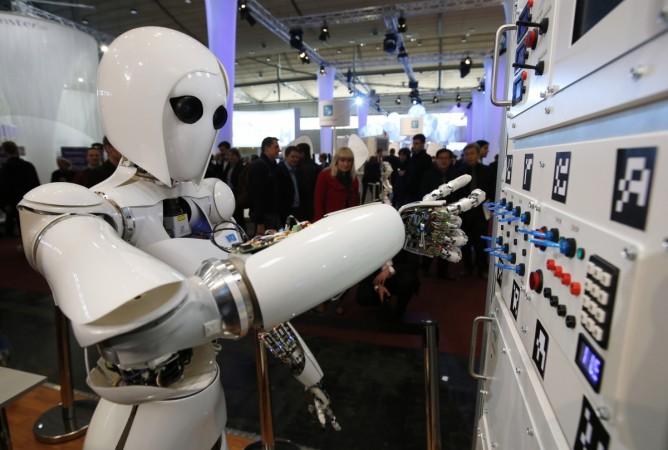
Japanese conglomerate SoftBank Group Corp said on Saturday that it has struck a deal to acquire robotics research firm Boston Dynamics and Tokyo-based Schaft from Alphabet, the parent company of Google.
Alphabet had bought Boston Dynamics in 2013 but decided last year to put it up for sale. Terms of the deal were not disclosed.
The new acquisitions will add to SoftBank's growing artificial intelligence portfolio.
Both Boston Dynamics and Tokyo-based Schaft design and manufacture robots that simulate human movement.
Boston Dynamics, in particular, has gained recognition for its efforts at developing robots with potential military applications. The robots are built to withstand substantial abuse in a range of challenging environments.
Shares of the company rose as much as 7.9 percent after the deal was announced, hitting a 17-year high.
"Smart robotics are going to be a key driver of the next stage of the information revolution, and Marc (Raibert) and his team at Boston Dynamics are the clear technology leaders in advanced dynamic robots," SoftBank Group Chairman Masayoshi Son said in a statement on Friday.
Raibert is CEO and founder of Boston Dynamics.
A Reuters report on Saturday said that the group is backing the $93-billion Vision Fund, the world's largest private equity fund that seeks to invest in technologies expected to grow significantly in the near future, such as robotics and artificial intelligence.
Son, Japan's richest man, describes the fund as essential for setting up SoftBank for a data "gold rush" which he expects to happen as the global economy becomes increasingly digitised.
"Robotics as a field has great potential, and we're happy to see Boston Dynamics and Schaft join the SoftBank team to continue contributing to the next generation of robotics," an Alphabet spokesperson said in the Reuters report.
The Washington Post noted on Saturday that as its population ages, Japan has increasingly turned to robots to make up for workers who are leaving the labour pool.












